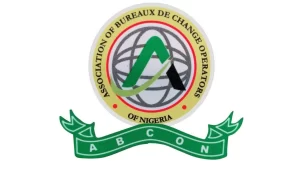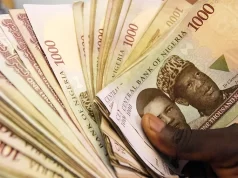The Association of Bureau De Change Operators of Nigeria (ABCON) has stated that the inclusion of Bureau De Change operators (BDCs) back into the mainstream forex market has played a significant role in the current stability observed in the exchange rate.


ABCON President, Aminu Gwadebe, expressed this view in a statement released over the weekend, commending the decision made by the Central Bank of Nigeria (CBN) Governor, Olayemi Cardoso.

Join our Telegram Channel for Updates
Gwadebe highlighted that alongside the tightening of monetary policies, increased investment in government instruments, and the clearance of $7 billion forex backlog forward commitments, the return of BDCs to the market was a crucial step by the apex bank to enhance dollar liquidity at the retail level of the forex market.
He further conveyed the association’s appreciation to the CBN under Cardoso’s leadership and other relevant agencies for recognizing BDCs as an integral part of the foreign exchange market and an effective mechanism for exchange rate transmission in forex management.
Exchange rate stability yielding positive outcomes
Gwadebe remarked, “The reintroduction of BDCs into the mainstream foreign exchange market has not only discouraged illegal economic practices such as hoarding, rent-seeking, round-tripping, and speculative forex trading but has also led to exchange rate convergence.”
He noted that the stability in the exchange rate has already begun to positively impact the prices of goods and services. For example, international school fees have decreased by 15%, medical tourism costs have reduced by 20%, and airfares for local and international trips have dropped by 25%.
Gwadebe emphasized, “The current developments in the foreign exchange market have begun to mitigate inflation as prices of essential commodities are becoming more affordable. Importantly, the positive impacts also include increased public confidence in the local currency, which reduces currency substitution behavior that previously exerted pressure on our local currency.”
Gwadebe highlighted the ongoing success story, noting that the naira traded at N1,255/$ on Saturday, lower than the advised N1,269.765 rate for BDCs.
Naira appreciates significantly
Describing the current market developments as revolutionary, Gwadebe pointed out that a stable naira would attract more foreign portfolio investments to the economy.
He highlighted that the naira had appreciated from a low of N1,915/$ in February to N1,255/$, representing a significant gain of N660 for the naira.
Gwadebe praised the CBN under Cardoso for recognizing the role of BDCs in ensuring a stable exchange rate.
He also noted a shift in the Hawala activities trend, where Nigerians previously took dollars from Nigeria for transactions but now find it cheaper to purchase dollars in Dubai than in Nigeria, leading to increased dollar inflows into the economy.
Rise in foreign portfolio investments
Gwadebe pointed out that the outlook for forex earnings is promising, with foreign portfolio investments on the rise and over $1.5 billion inflows recorded shortly after the Monetary Policy Committee (MPC) raised interest rates by 200 basis points.
He emphasized that the increased foreign exchange inflows into the economy through CBN’s monetary instruments were bolstering foreign reserve accretion and empowering the apex bank to continue defending the local currency.
Gwadebe concluded by urging the CBN to maintain the collaboration between BDCs and the apex bank to sustain the success achieved. He also reiterated ABCON’s commitment to collaborate with the CBN to ensure the inclusivity of all members in achieving mutual benefits and safeguarding investments, skills, and employment opportunities in the sector.













